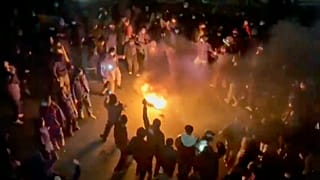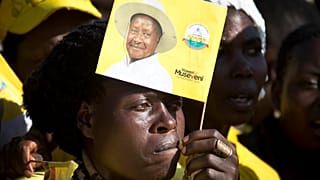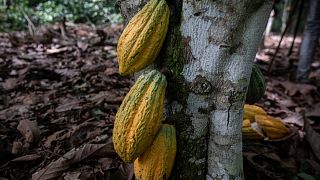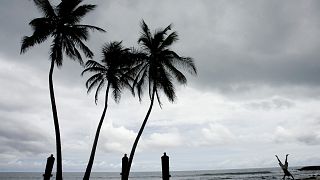São Tomé and Príncipe
Polls have opened in the island nation of Sao Tome and Principe where citizens are choosing a president.
Over one hundred thousand voters are expected to cast their ballots in the poll which pits incumbent president Manuel Pinto da Costa against four other contenders.
Two of the contenders, Evaristo Carvalho and Maria das Neves already pitted their strengths against Pinto da Costa in 2011 but lost.
Sunday’s poll is expected to be a keen one among these three main contenders who have played different roles in the island nation’s political life.
Carvalho was a minister in the late 1970s and has twice served as Prime Minister since 1991 while Neves, an economist at the Central Bank has been a long-time parliamentarian with Sao Tome’s second largest party, MLSTP.
Head of the country’s electoral body, the National Electoral Commission, Alberto Pereira has assured that all is set for the polls. He is quoted as saying: “We had materials in time. Human and financial resources are also in order”.
Pereira also assured that provision has been for power outages at all 311 polling stations spread across the country.
Sao Tome’s citizens in the diaspora particularly Portugal, Angola, Gabon and Equatorial Guinea are all expected to cast their ballot.
Campaigning for the polls which ended on on Friday was said to have been peaceful and calm although there were reports of use of inflammatory words by some candidates. Messages however focused on issues of political stability and development among others.
Former Mozambican president, Armando Guebuza is leading an African Union observer mission to monitor the polls.
Pinto da Costa who is seeking to renew his mandate was the island nation’s first president from 1979 to 1990. He returned to power in 2011 after trying unsuccessfully to reclaim power in 1996 and 2001.
The former Portuguese colony which gained independence from Portugal in 1975 has a semi-presidential system where the president assume the functions of head of state and a prime minister serves as head of government.
The president, elected by universal adult suffrage has a maximum of two five-year terms and is responsible for naming the prime minister from among political parities represented in the National Assembly.
A second round of voting is expected if no candidate manages to secure more than 50 percent of the votes in the first round.









![São Tomé and Príncipe : Ousted Prime Minister Takes Legal Action [Interview]](https://static.euronews.com/articles/stories/08/95/83/04/320x180_cmsv2_2b4ddc2e-c26f-5113-927e-34c0766d058f-8958304.jpg)
01:44
Runner-up in CAR's presidential election rejects provisional results, alleging widespread fraud
01:12
Central African Republic votes amid mostly peaceful election day
01:28
Guineans head to polls as Doumbouya closes campaign amid democracy concerns
Go to video
Central African Republic elections set for Dec 28 amid Russia ties
01:14
CAR deploys armed forces and MINUSCA to secure elections
01:29
Central African Republic receives key electoral materials ahead of December vote